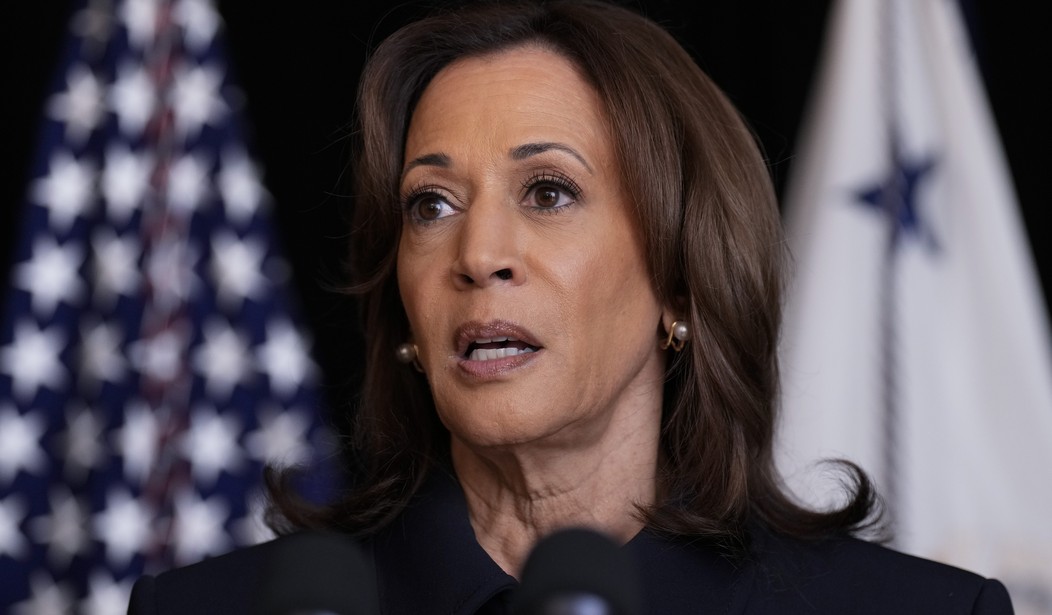It sure looks that way. Writer and educator Christopher Rufo has documented multiple instances where Harris borrowed verbatim passages from press releases, news articles, and even Wikipedia for her 2009 book Smart on Crime: A Career Prosecutor's Guide to Make Us Safer.
In another section of the book, Harris, without proper attribution, reproduced extensive sections from a John Jay College of Criminal Justice press release. She and her co-author passed off the language as their own, copying multiple paragraphs virtually verbatim. Here is the… pic.twitter.com/9FpsxQE8Sz
— Christopher F. Rufo ⚔️ (@realchrisrufo) October 14, 2024
Harris's book was released as she launched her campaign to become California's Attorney General, and has largely been forgotten in the years since. But Rufo says when Austrian "plagiarism hunter" Stefan Weber started digging through the material, he found multiple instances where Harris and co-author Joan O'C Hamilton cut and paste passages from outside sources without offering attribution.
Rufo describes some of the incidents as "minor transgressions", but says there were several passages that "reflect more serious infractions."
Taken in total, there is certainly a breach of standards here. Harris and her co-author duplicated long passages nearly verbatim without proper citation and without quotation marks, which is the textbook definition of plagiarism. They not only lifted material from sources without proper attribution, but in at least one case, relied on a low-quality source, which potentially undermined the accuracy of their conclusion. Of course, Harris, like many other public figures, may have relied entirely on a ghostwriter to draft her book. But that is not exculpatory: Harris, at the end of the day, put her name on the cover.On that point, one might recall the title of her book: Smart on Crime.
There is nothing smart about plagiarism, which is the equivalent of an academic crime. The publisher, as well as the sitting vice president, should retract the plagiarized passages and issue a correction. There should be a single standard—and Kamala Harris is falling short.
Maybe that's why Joe Biden was so keen to add Harris as his running mate four years ago. Biden's campaign for the Democratic presidential nomination in 1988 was derailed after his own plagiarism scandal came to light, so perhaps he felt a kinship with Kamala over her own troubles with attribution.
As Rufo says, it ultimately doesn't matter if it was Harris or her co-author/ghostwriter who liberally borrowed other material. It's her name on the book, and the buck stops with her. But the stolen passages also make me wonder if Harris truly backed some of the strategies and tactics detailed in Smart on Crime. While Harris praised the targeted deterrence strategy deployed against open-air drug markets in High Point, North Carolina, for instance, she's taken a much different approach to the criminal use of firearms. Instead of focusing on the most violent and prolific offenders, Harris wants to cast a net over lawful gun owners in the hopes of catching criminals as well.
The High Point effort included the involvement of John Jay College's David Kennedy, and was based on the work that he and others had done to bring down the juvenile homicide rate in Boston in the late 1990s. As Kennedy wrote in his 2011 book Don't Shoot: One Man, a Street Fellowship, and the End of Violence in Inner City America, then-Boston Police Commissioner Bill Bratton was focused on using the Brady background check bill to combat juvenile crime, but Kennedy pointed out a fundamental flaw in that strategy:
Brady is designed to keep adults with criminal records from buyng guns at licensed gun stores, I told him. You know it won't help at all with what you're dealing with here in Boston, right? These kids aren't buying their guns at gun stores, they can't anyway. It's all illegal now. Brady won't touch it.
The same could be said of Harris's push for "universal" background checks. The vast majority of federal inmates who've used guns in connection with violent crimes got ahold of one through theft, the black market, or family and friends, so imposing additional background check requirements on private, person-to-person sales isn't going to touch them. If Harris had taken Kennedy's lessons to heart, she wouldn't be demanding more laws that would turn our right to keep and bear arms into an interlocking series of non-violent, possessory crimes. She'd be focused on the relatively few number of prolific offenders who are driving crime in communities across the country. That's the most effective way to reduce violent crime, and it can be done without enacting any new gun laws whatsoever. Harris may have borrowed verbatim from John Jay College's press release about eradicating High Point's open-air drug markets through targeted deterrence, but either she didn't learn the real lesson from that initiative or she chose to ignore it in favor of advancing her own strategy of turning gun owners into criminals through draconian gun control laws.









Join the conversation as a VIP Member